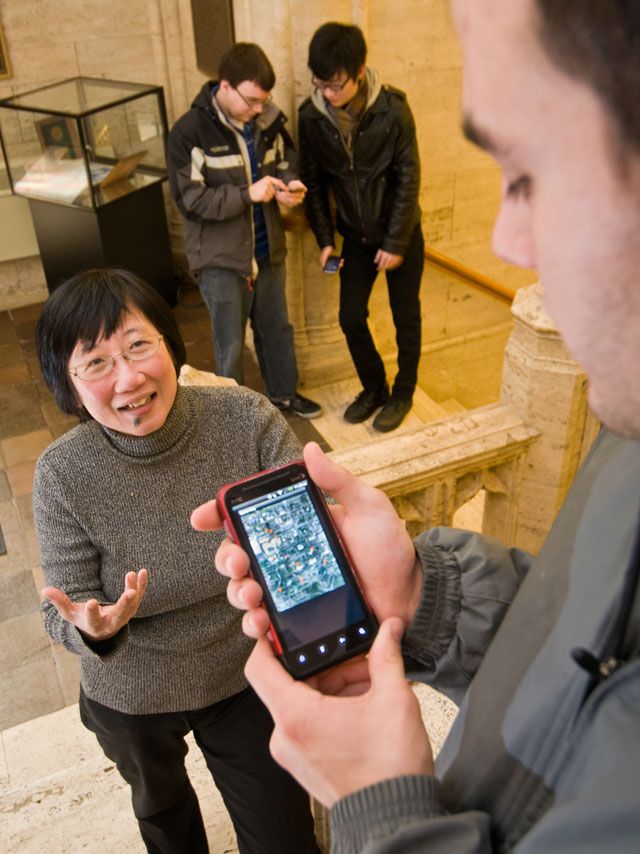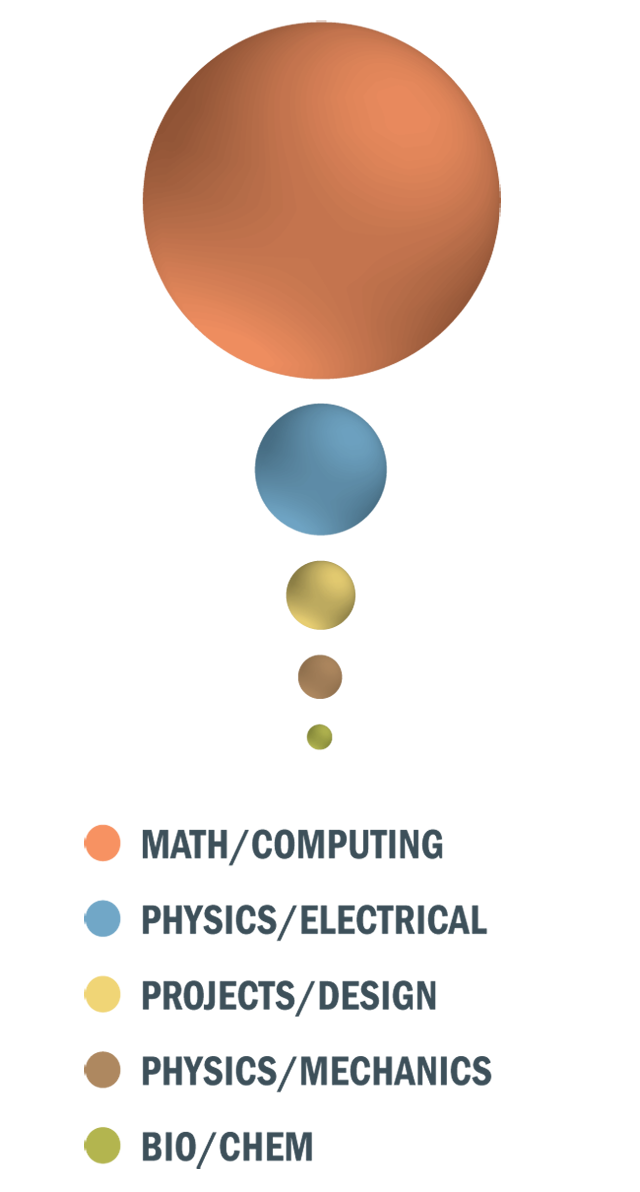Information technology and the engineering disciplines that support it comprise a broad and varied field. You may be interested in designing and developing computer hardware, which might include computers and peripherals, wireless communications and networking systems, semiconductors, microelectronics fabrication, signal processing, fiber optics, digital sensors, Internet technologies and many other products. Perhaps software development may be more to your liking, which could include programming, multimedia development, data mining, computer graphics, compiler design, algorithm design, database management or business systems analysis. You might combine these two perspectives to create integrated systems, such as computer games or cell phones with hardwired programming. Engineers in information technology work in every sector of the economy, from manufacturing and fabrication to communications, entertainment and finance.
Focus Areas
Lehigh students in this field typically explore these topics:
- Virtual environments, wearable computers, multimedia broadcasts and video compression
- Digital systems and sensors, fiber optics, wireless networks and compound semiconductors
- Interconnected networks, computer architectures, processor design, embedded systems and Internet technologies
- Integration of computer skills, mathematics and knowledge of a specific application (such as logistics or finance) to create efficiency in the operations of industrial, service or financial organizations
Research and Resources
Although information technology is infused throughout all aspects of Lehigh's engineering programs, there are many labs and facilities established across the campus designed for research in specific areas of this field. It is a wide-ranging set of activities and research, including topics such as display technologies, signal processing and communications, Internetworking, wireless infrastructure and networking security, computer and software architecture, graphics and virtual environments, Web modeling and evaluation, mobile robotics, systems experimentation and analysis, and pattern recognition.
Some of the successful projects undertaken by Lehigh faculty and student research teams are as follows:
- A team of Lehigh engineers joined with colleagues from the University of Pennsylvania and Lockheed Martin to design a self-navigating, self-driving car equipped with videocamera "eyes" and laser range-finder systems that allowed the vehicle to drive itself through a 60-mile course, as part of a DARPA-funded research competition.
- Lehigh signal processing and communications researchers have found ways to help law enforcement and security officials search for concealed weapons. This has been accomplished by combining visual and "millimeter wave" images to produce one fused digital image that can identify weapons hidden beneath clothing.
- Students in the "InSyte Lab" work with faculty to better understand how computers think and learn, and to apply that knowledge to the development of games, project planning and decision support systems.
- Wireless engineering students at Lehigh work to establish multi-tier network models to help provide underserved geographical regions with access to Internet, cell phone and emergency-response services.


